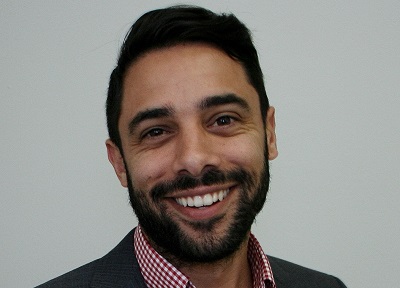'One million terminals by 2020' says Nomanini
'One million terminals by 2020' says Nomanini

Vahid Monadjem, co-founder and CEO of informal market payment technology company Nomanini wants to roll out a million terminals by 2020 as part of the company's overall ambition to be the preferred solution for transactions in informal markets.
Right now Nomanini has close to one thousand terminals active in Africa – specifically in Ghana, Kenya, Mozambique, Namibia and South Africa.
These terminals collectively generate a million end-user transactions per month, with 800 to 2000 transactions per terminal per month.
The Company specialises in facilitating cash transactions in informal markets. This space is driven by innovative solutions that meet a need for tools that enable people to conduct transactions safely. According to Monadjem despite the popularity of mobile money services, the Africa market is still cash-focused and cash still remains the primary mechanism for daily transactions.
In Kenya, for example, 98% of retail transactions are cash, Monadjem continues.
He says Mozambique is the company's busiest region. "Our partnership there has deep insight and connections in the market. They also have extensive operational experience and the capital to accelerate. I think West Africa will overtake this region soon, given the scale of these markets."
Partnership is a key element of the company's growth strategy. Nomanini has ten partnerships in place including with the likes of Zambian airtime distributor StreetCred and Namibian mobile airtime distribution service Katiti.
According to Monadjem the company continues to seek out partners with the potential to succeed in their markets. To Nomanini this means thorough knowledge of markets, passion, available capital and 'operational ground game'. "While we try our best to reduce the barrier of capital by enabling clients to start small and figure out their business and operating model before scaling up, passion, knowledge and operational knowhow is absolutely essential."
In addition to these strategic industry alliances that reinforce its value proposition, Nomanini has also managed to secure valuable funding.
In February 2014 the company secured series-B funding from Seychelles-based investment company Rockbridge Investments Limited and in August the same year received funding in the amount of R4.8 million from the Industrial Development Corporation (IDC). These monies have been used to scale operations, push its proprietary, cloud-enabled PoS system in South Africa and recruit relevant expertise.
Expansion into verticals and unwavering attention to end-user experience forms part of Nomanini's strategy. "Our strategy rests on three pillars. The first is our agile iteration constantly improving our platform on a daily basis. We are expanding our reliable, full-stack transactions platform across a growing number of verticals. From mobile to ticketing to payments. The second is to unleash the latent potential of local developers for this platform to be adopted and adapted by local partners. And the third is the most fundamental: we maintain a dogmatic focus on the experience, business and success of the end user in the informal trade. Everything else is tactical execution," says Monadjem.
The company believes its success has a lot to do with its ability to adapt to local conditions and its intention to 'design for Africa'. Challenges are seen as 'design constraints' rather than headaches and Nomanini deals with this by adapting its design and production capability. "If mobile connectivity is sketchy, we build off-line vending capabilities. If power is intermittent, we design for days (not hours) of battery life."
"We present a bridge from cash to electronic stores of value. Once we're doing that, the reverse is trivial. In the longer run, whether a merchant is accepting cash or electronic stores of value, we will provide transaction tools to make transactions easy, secure and fast."
Monadjem adds that the capability to deliver new technology is as important (if not more so) than the technology itself and agility is a must for any serious operator in this space.
